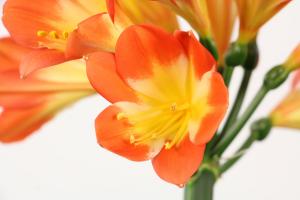Can You Water Your Plants with Pool Water?
For many homeowners with swimming pools, the question of what to do with pool water that is no longer desirable for swimming often arises. One common idea is to use the water to irrigate landscaping, including plants and gardens. However, the question remains: can you water your plants with pool water?
The Risks of Using Pool Water for Irrigation
While it may be tempting to reuse pool water for watering plants and gardens, there are certain risks that homeowners should be aware of. First and foremost, pool water contains high levels of chlorine and other chemicals that are designed to kill off harmful bacteria and algae. While these chemicals may be effective in keeping pool water pristine, they can also be harmful to plants and the surrounding soil. High chlorine and salt levels in pool water can harm plant foliage and roots, causing discoloration, leaf burn or even plant death.
In addition, pool water may contain other substances that can be harmful to plants, such as sunscreen and other personal care products. These substances may accumulate in the soil over time, leading to long-term damage to plant life.
Is It Ever Safe to Use Pool Water on Plants?
In some cases, it may be possible to use pool water on plants, but only after it has been properly treated and filtered. One option is to run pool water through a filtration system that is specifically designed to remove chlorine, salt and other harmful substances. Homeowners may also choose to add minerals and other nutrients back into the water to improve its overall quality for plant life.
Another option is to wait and allow the pool water to naturally dissipate and evaporate over time. By giving the water enough time to break down, homeowners can reduce the chemical concentrations in the water and make it safer to use for plant irrigation.
Alternatives to Using Pool Water for Irrigation
If you are looking for alternatives to using pool water for irrigation, there are several options to consider. One option is to simply drain the pool water into a sewer system or other drainage area. While this option may not be ideal for all homeowners, it can be an effective way to safely dispose of pool water without harming the surrounding environment.
Another option is to collect rainwater for use in irrigation. Rainwater is completely natural and chemical-free, making it an ideal option for watering plants and gardens. By installing a rain collection system, homeowners can save money on water bills and reduce their reliance on municipal water systems.
Conclusion
While it may be tempting to reuse pool water for outdoor irrigation, the risks to plant life and soil quality make it a less-than-ideal option. Homeowners who are committed to using pool water for irrigation should consider filtering the water or waiting for it to naturally break down before use. Alternatively, they may choose to explore other options for safe and effective irrigation, such as collecting rainwater or using alternative fertilizers and soil treatments. Ultimately, the key is to make responsible choices that prioritize the health and wellbeing of plant life and the surrounding environment.

 how many times do yo...
how many times do yo... how many planted tre...
how many planted tre... how many pine trees ...
how many pine trees ... how many pecan trees...
how many pecan trees... how many plants comp...
how many plants comp... how many plants can ...
how many plants can ... how many plants and ...
how many plants and ... how many pepper plan...
how many pepper plan...































